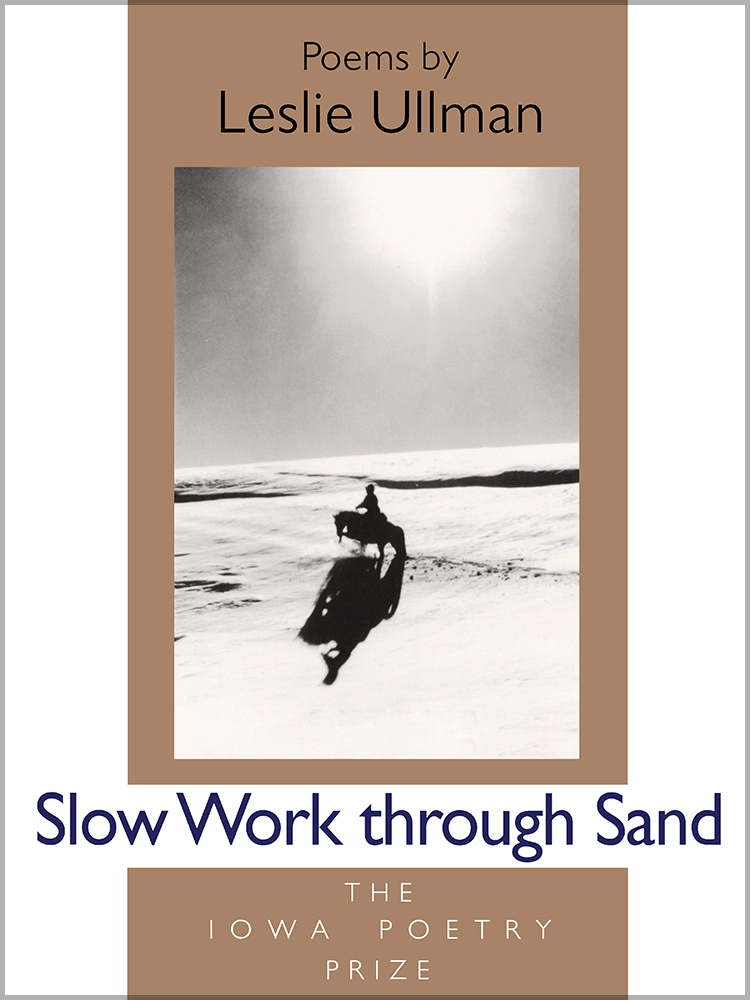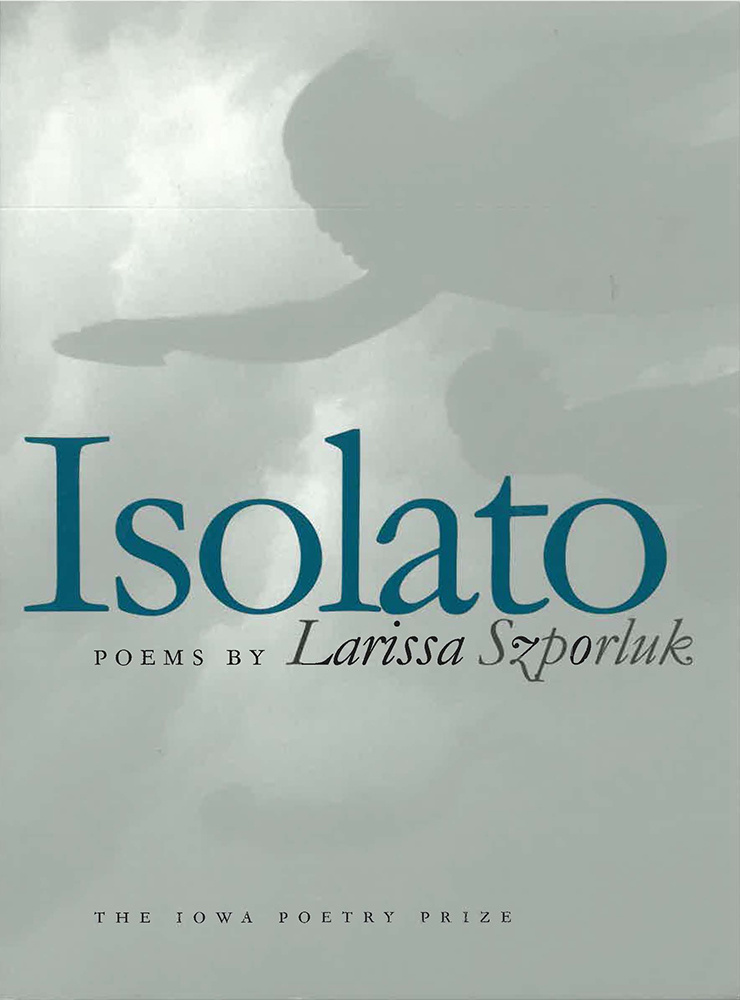For a number of years, Leslie Ullman has lived in the Southwest, on cultivated land, in the company of horses and with access to uncultivated desert. The seasons and conditions of this starkly appealing land have found their way into the poet and her work. In her poems there always seems to be someone who is making herself over from scratch. Ullman creates origins for herself in nature, in solitude, in animals, and of course through those aspects of human relationships that teach important lessons.
Since winning the prestigious Yale Younger Poets Award in 1979, Ullman has manifested her love of language as both writer and teacher. As she remembers from her youthful summers in a Wisconsin lake lodge: “Sometimes the words I read were the tap of rain on the roof or the fire snapping in its great stone bed, but mostly they bloomed as the sound of the lake, a mantra against the weathered dock.” She writes that her book may be trying to validate the “history of women”—the title of one of the poems—just as “men's history has always validated hugely and by implication the way we use language and the way history has been taught.”Hers is not a defensive or an angry intention, however, but an exciting one. Slow Work through Sand attempts simply to make visible “the dance a woman's life is, not apart from other dances, but as a valid dance among dances.”
“In a delightful poem titled 'French,' Leslie Ullman speaks of 'the mother river of language flowing past….' She uses it to bring contrasting landscapes to life: northern island, southern desert, both infused with the colors and textures of uncut gems.”—Maxine Kumin
“Leslie Ullman has the ability to spin illuminating spells through and around the matter of earth and life. Her vision penetrates with an attention as careful and as transforming as day through clear water, as moonlight on stone. She is an artisan with words, and the results are poems embodying the intricacy and beauty of the subjects they honor.”—Pattiann Rogers
“Winner of the Iowa Poetry Prize, Leslie Ullman's Slow Work through Sand…makes dance her presiding metaphor…What makes this dance so tortuous is also what makes it so beautiful: its musical mingling of language, nature, and spirit cranked through history's hurdy-gurdy. Late in the century, we realize this history is mostly patriarchal (which makes dance's steps even more tortuous), but refreshingly, that word never shows its tired face in Ullman's poems…Beauty and patience are Ullman's aesthetic watchwords, for they link nature and word in spirit. Numerous poems devoted to precious stones—amethyst, lapis lazuli, aquamarine, onyx, and the like—underscore the poet's appreciation of patient natural forces that 'perfect and polish' beauty, something she aspires to do with words…Looking toward a distant mountain, reverently and at length, the poet becomes one with larger cycles of nature and language.”—Colorado Review
Calypso
She is loved in secret, by
one man at a time seeking
cleared ground in the forest
of his life. She glows against
virgin timber, the dense shadows
and riot of ferns that part
before his exploring feet.
In her cave, candlelight
burnishes the walls around
the half of his life
he has not yet lived,
the wild lover rising through
his hands, his voice,
tenderness too, pure lyric, his thoughts
startling him with night gardens
while the walls of his family home
and the legs of his laden table
and the posts that float
his marriage bed
hold the heft of his days. Sheets
and curtains drying
in the wind, then filling
the house with the scent of sun.
Plates in the drainboard,
the pitcher of juice, all of it
witnessed by those who
belong there, passing easily from
room to room, their touch
braided into wood and cloth and china
even as they forget, touch
them again, go out, come home.
Sometimes she wants to leave the island,
its wildness of her making, only to
find a harsh descent down slopes
the sun rarely touches. Rocks
tower there, balanced against
all odds. Sometimes she
presses against them,
longing to walk in her own flesh
down his flat sunlit street
and see him open his door. The rocks
press back. In their deep cracks flowers,
vermilion and lacy white,
thrive in the shade.
Lent
These nights we wait for
the easing, when Neptune
and Pluto will have
gone their separate ways
again, their gravities
loosened from the seasonal
tug-of-war that plays hell
on each conscience,
that stranglehold of regret
and missed connections.
We ritually banish
ourselves from feasting,
our place in the food chain
no longer recognizable.
We nibble at the edges of
a vague grief and pull
the salt from our tears.
Midnight, and still we hunker
at the table, measuring in ourselves
our ancestors' notion of
goodness by fractions
of an ounce, gold
bought on a gamble—
to save towards what? What
to do but finally
call forth those we have
silenced with our blind
love, our inherited hungers,
the claims of blood ties?
They come to forgive us and move on—
the child, the imp, the merchant
of laughter, the one who
wanted to fly, the one
who dreamed an amazing machine,
the one who stood apart in the photos.
We bury the bones.
The wood in the winter stove,
the kettle singing,
are almost enough now,
almost enough, we whisper into
the last faces, ours,
that wait across the table.



